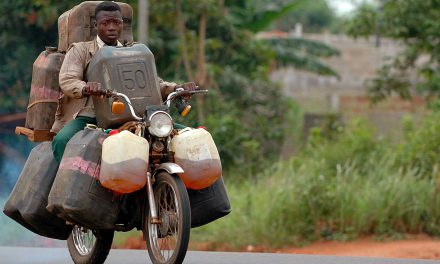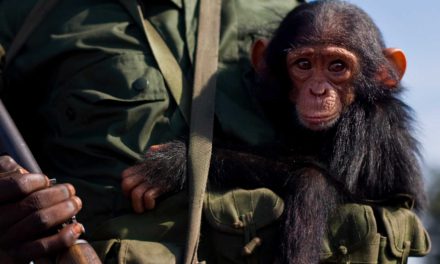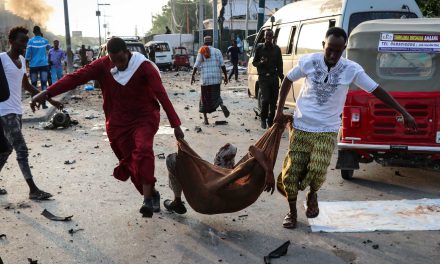In the aftermath of COVID-19, organised crime has soared across Africa. Indeed, as noted by the Institute for Security Studies (ISS), despite lockdowns and movement restrictions due to the pandemic, organised criminals were able to adapt more effectively than legal entities to the disruptions and thus exploit them advantageously.
Though initially somewhat surprising, this “pandemic pivot” makes sense. Times of crisis frequently stretch formal governance systems, giving illicit market actors an opportunity to capitalise. Moreover, reduced social and public services leave desperate people in search of alternative forms of support, sustenance and leadership. The pandemic was no different – overwhelmed, many states and law-enforcement agencies left gaps in their emergency responses allowing criminal enterprises to move “underground” – shifting both the modus operandi and the nature of their criminal markets.
To be sure, the recent statistics paint a worrying picture. According to the most recent Organised Crime Index, Africa experienced an annual loss of $88.6 billion in illicit financial flows linked to criminal activities. This is equivalent to 3.7% of the continent’s GDP, according to the United Nations Conference on Trade and Development (UNCTAD) Economic Development in Africa Report 2020. More than two-thirds of Africans are living in countries with high criminality, and nearly 80% in states with acute vulnerability and low resilience. Per the index, organised crime got worse in 42 countries on the continent and improved in just 12 between 2019 and 2021.
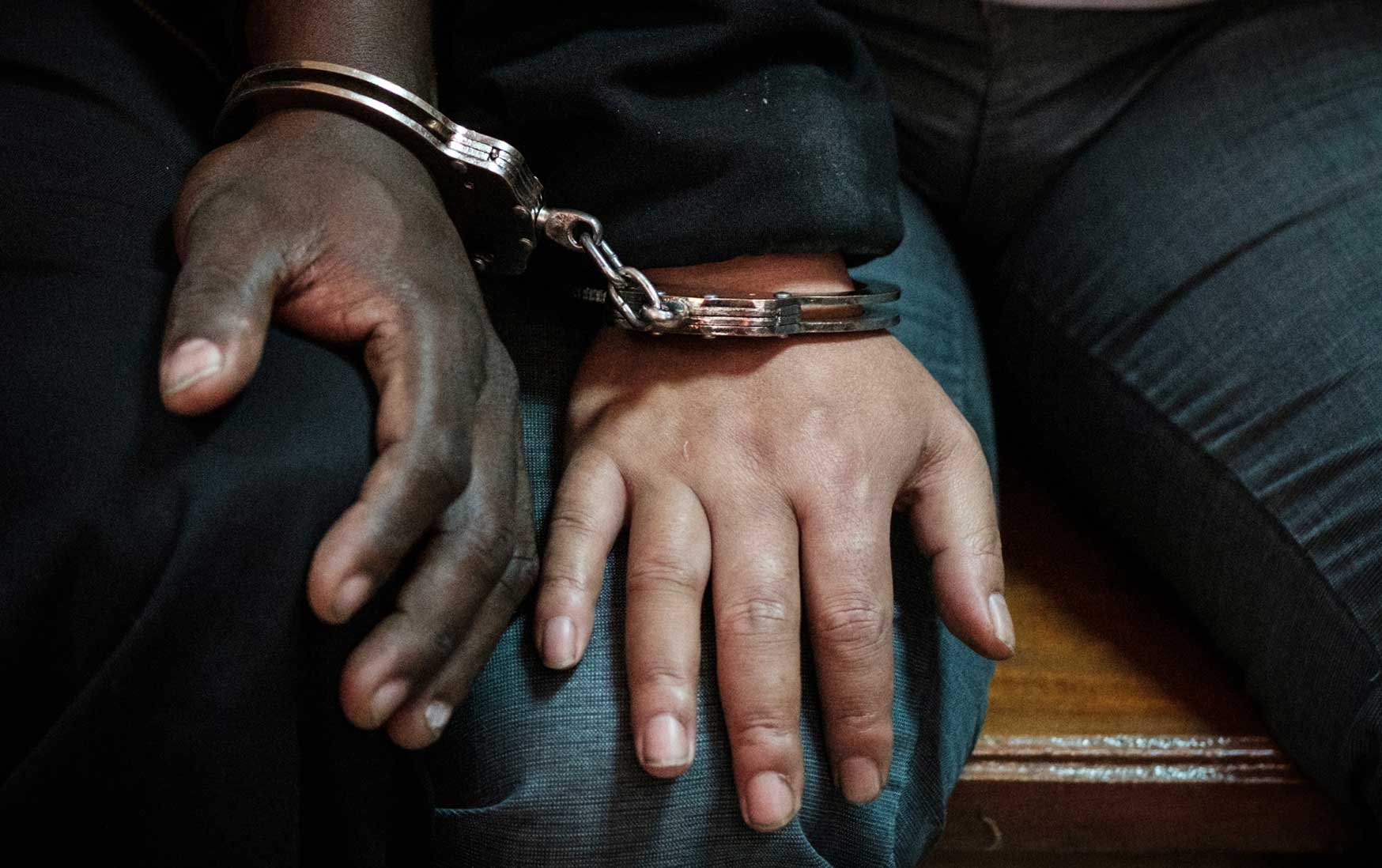
A Chinese and Kenyan national, arrested together with two other Chinese nationals for alledgedly illegally storing ivory and animal trophies in a house, sitting handcuffed in the dock at the Milimani Law Court in Nairobi, Kenya. Photo: Yasuyoshi Chiba/AFP
As a result of these circumstances, the security landscape on the continent has deteriorated significantly. Organised crime entities have exploited pre-existing governance failings in societies – opportunistically and strategically. In the African context, a few areas, in particular, stand out – namely graft, terrorism, human and drug trafficking, cybercrime, and wildlife trafficking.
During COVID-19, graft relating to state procurement of medical supplies was staggering. Criminal syndicates in many countries, including South Africa and Kenya, cheated governments and consumers with faulty and counterfeit PPE. Other methods have included outsourcing delivery to companies owned by relatives or friends to supply medical equipment and services to the state at inflated prices in exchange for kickbacks.
The relaxation of tender and procurement rules as governments rushed to prepare healthcare systems for an anticipated influx of patients made it easier for funds to be misappropriated. This grand-scale corruption, however grotesque, was not surprising. Governments that engaged in corruption were unlikely to veer off course when it came to managing COVID-19 relief funds. Institutional capacity was too weak and the political culture too entrenched for this to change overnight, crisis or not. The pandemic simply magnified existing shortfalls. In fact, it highlighted how the state or embedded state actors are often at the centre of, and derive benefit from, such illicit activities. The state’s role as a key vector in organised crime should now be fully appreciated.
The pandemic also exacerbated existing risks and made larger groups of people vulnerable to poverty, as border closures, early lockdowns and the continuing economic fallout left these groups subject to exploitation. These economic and societal inequalities, which are among the root causes of human trafficking, have driven an increase in this phenomenon. With schools closed, the pandemic forced more children onto the streets in search of food and money, increasing their risk of sexual exploitation.
In addition, the closure of land, sea and air borders has increased people’s need for the services of smugglers to cross borders. Despite an initial disruption to smuggling routes and supply chains, illicit drug trafficking quickly adapted. The UN office for drugs and crime (UNODC) now estimates that more than 50 million tons of narcotics are trafficked via West Africa every year, and with the COVID-19 pandemic these criminal organisations amended their already advanced digital modus operandi, finding new ways to transport illicit substances and betting on digital tools that guarantee rapidity and anonymity.
In contexts where state presence was weak or absent, non-state actors stepped in to deliver services such as healthcare, education and sanitation. These types of approaches were clearly aimed at winning the hearts and minds of citizens, and present a compelling counterweight to ineffective government responses. Historical examples range from the Taliban in Afghanistan to the Mafia in Italy, and even drug cartels in Latin America. Sensing an opportunity to further ideological and operational agendas, terrorist organisations have redoubled their efforts to win the support of citizens.
Though there was initially uncertainty about whether lockdowns and physical distancing would hinder their ability to recruit, radicalise and plan and conduct operations, terrorist organisations have both adjusted and accelerated their efforts. Shifting military resources, the withdrawal of international peacekeepers and reduced counterterrorism operations have amplified these pressures.
As Interpol observed, during the pandemic some terrorist groups such as Al-Shabaab changed their rhetoric to focus on anti-government messaging, going so far as suggesting that governments had failed to protect their people. Disinformation was also employed in Somalia, with Al-Shabaab claiming that the virus was spread by foreign soldiers. The purpose of this misinformation was likely to attract more supporters and justify attacks on international military forces.
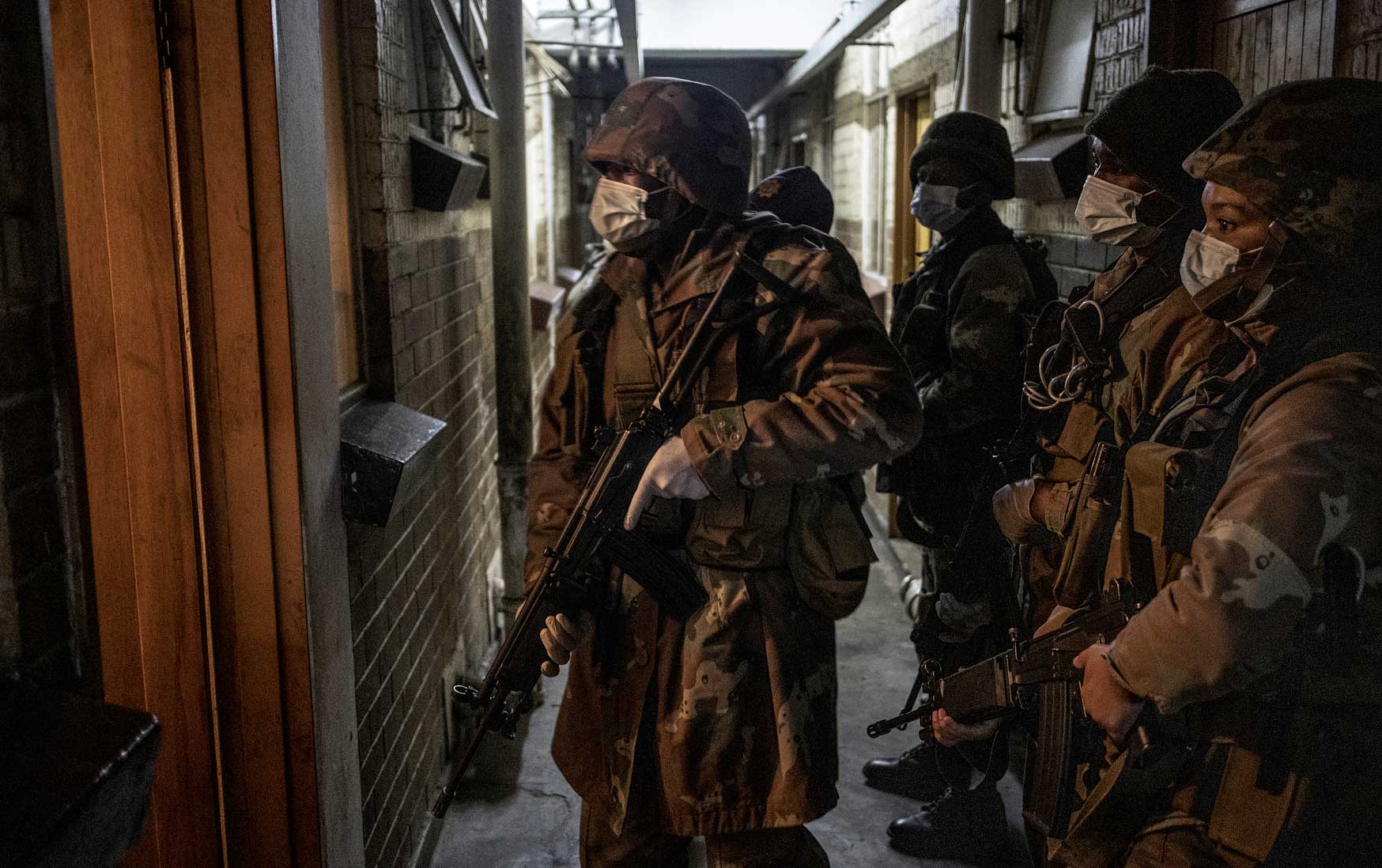
South African soldiers wearing protective masks amid concerns for the COVID-19 coronavirus search an apartment block in Johannesburg, in April 2020. Photo: Marco Longari/AFP
Another area of concern is the wildlife sector – the lifeblood of the tourism industry in Africa. With countries in lockdown and both foot flow and revenues declining, normal activities in national parks and protected areas that bring additional eyes and ears into these spaces all but dried up. The resultant economic hardship put further pressure on already poor local communities, while lockdowns emptied parks of tourists and rangers on patrol, incentivising poachers. Grounded flights and international travel bans served to disrupt the trade and led to the stockpiling of wildlife cargoes. Intriguingly, the sale of wildlife parts and derivatives moved online. The internet, and the dark web, “became a global bazaar for the exotic wildlife trade selling anything from big cats to parrots”, as noted by Africa Business magazine.
As digital access and demand grows across the continent, organised crime groups have increasingly turned to the Internet to conduct their illicit business. Criminals have exploited discrepancies across the region, which occur due to variations in law enforcement capabilities across physical borders.
Africa’s e-economy is now expected to reach $180 billion a year by 2025, but the region’s insufficient efforts to block cybercrime could hamper this growth. Cybercrime is estimated to cost Africa $4 billion a year (a figure that hits $450 billion worldwide). The biggest cyber threats in an African context include online scams (such as phishing), digital extortion, business email compromise, ransomware and botnets. Due to the lack of cybersecurity policies and standards, the continent ranks among the most cybercrime-vulnerable in the world, with approximately 90% of African businesses operating without the necessary cybersecurity protocols in place. Without them, threat actors can exploit increasing vulnerabilities as they continue to invent new cyberattack vectors.
However, it is not all doom and gloom. There are various efforts at country, regional and multilateral levels to combat the rise of organised crime in Africa.
Perhaps the most influential of these is Project ENACT, which stands for Enhancing African Capacity, to respond more effectively to transnational organised crime and was launched in 2018. It is the first programme of its kind to analyse the scale and impact of organised crime across Africa. It undertakes comprehensive monitoring and assessment of organised crime at the cross-regional and continental level and its impact on governance, state fragility, development, security and the rule of law.
Project ENACT is implemented by a partnership of expert organisations, namely the Institute for Security Studies (ISS) and Interpol, in affiliation with the Global Initiative against Transnational Organised Crime. The project seeks to build a comprehensive knowledge base on the role of organised crime in Africa based on monitoring and evidence-based analysis to inform policy decisions, and to boost the skills and capacity of key African stakeholders to better respond to transnational crime threats.
However, these efforts alone are insufficient. As organised crime enterprise has adjusted their business models to the “new normal”, authorities must now equip themselves with the necessary skills and instruments to address organised crime activities.
Key to this will be upskilling law enforcement and judicial capacity. Next, regional cooperation between states is vital to improving coordination and monitoring efforts. In addition, partnering with civil society organisations and research institutions is vital to reduce the opacity around such activities. This will need to be augmented by appropriate technical, financial, and human resources from international development partners and agencies. Most importantly, long-term and sustainable solutions will require smart policies and political will from governments to act decisively against these threats.
Martin Ewi of the ISS noted in 2021 that any lasting solution would require a holistic approach. “By seeing organised crime as an interdisciplinary problem, the strategy gets all role players involved in an integrated manner. Essentially, it makes the job of combating organised crime a societal responsibility and not just a task for law enforcement agencies.”
Post-pandemic realities have also brought to light the importance of a functioning social contract. Security, robust institutions, and public order and trust are central pillars in building strong and cohesive societies. Yet, when considering the expansion of organised crime on the continent, they are clearly either sorely lacking or underdeveloped. The absence of these pillars creates fertile conditions for nefarious agendas to take root, and for organised crime to thrive. As academic and former South African member of parliament, Gwen Ngwenya, observed recently, “when the official state cannot provide security, education, healthcare, or mobility – a parallel state develops”.
There is, therefore, legitimate concern over the future of state governance and the political capacity of states to cope with the threats of extremism, potential conflict and expanding criminal power – most especially since they are often complicit in these efforts. While the short-term impacts of crime and the movement of illicit products, particularly where there are governance vacuums and resource constraints, are cause for concern, the long-term impact on development is even more worrying.
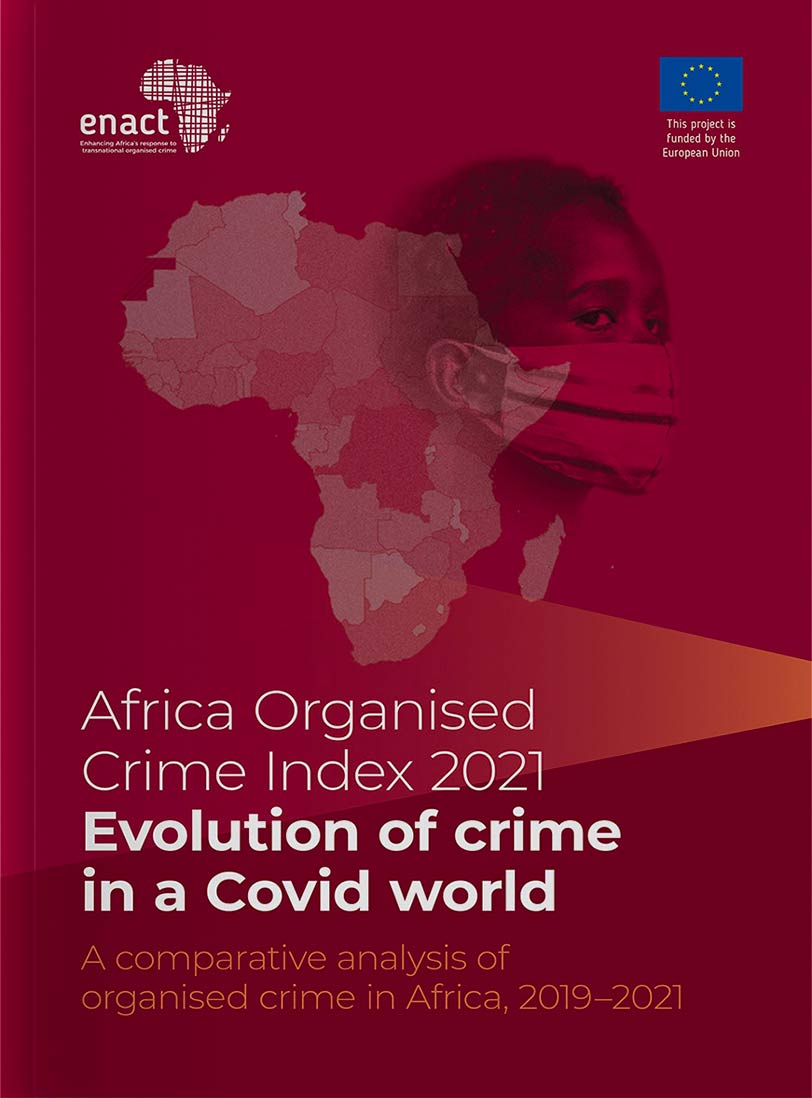 Since its inception ENACT has:
Since its inception ENACT has:
- Produced a repository of research from the continent since its establishment; close to 70 research reports and policy briefs have been published that focus both on markets and actors in TOC, as well as several political economy papers across the regions.
- Developed an Organised Crime in Africa Index. The index uses key measures of criminality and resilience, along with more detailed subsets to open dialogue on state vulnerability and response to TOC.
- Enhanced capacity building for law enforcement, delivered through the INTERPOL-ENACT analytical units.
- Provided technical assistance to regional and national police, criminal justice and related agencies, a key work stream to tie evidence-based research to policy influence.
RONAK GOPALDAS is a director at Signal Risk, an exclusively African risk advisory firm. He was previously the head of country risk at Rand Merchant Bank (RMB) for a number of years, where he managed a team who provided the firm with in-depth analysis of economic, political, security and operational dynamics across sub-Saharan Africa. He holds a BCom degree in philosophy, politics and economics (PPE) and a BCom (Hons) from the University of Cape Town (UCT). He also has an MSc in finance (economic policy) through the School of Oriental and African Studies (SOAS) in London.[


